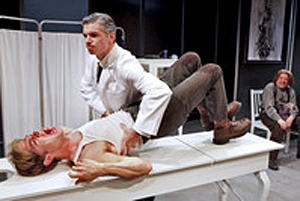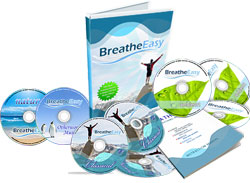You can resist such dangerous over-medicating by adopting common-sense, natural ways to lower blood pressure and maintain a healthy heart!

The "polypill" for lower blood pressure and cholesterol has been hailed as a "magic bullet" for the heart
You may have heard about the marvellous new “polypill”, a single medication that combines statins to lower cholesterol, aspirin to prevent blood clots, and medications to reduce blood pressure. Some doctors along with the drug’s manufacturers see the polypill as a potential breakthrough in the prevention of hypertension and heart disease.
And to further their cause it seems that polypill backers arrange a media campaign at regular intervals to pave the way for the arrival of the new “miracle drug”. I first wrote about the polypill in my article Magic Bullet For Lower Blood Pressure & Cholesterol Is A Dud as a response to a pharmaceutical PR campaign in 2008…
But despite every criticism the polypill doesn’t die; it just keeps coming back. You can easily get cynical and say that what they’re doing is “preparing the market”…
You see, some doctors have become so convinced of the polypill’s benefits that they want to see them prescribed to every adult over the age of 50, whatever their blood pressure, whatever their risk of heart disease!
What a stupendous coup this would be for the drugs industry! Statins and blood pressure medications are already the world’s best-selling drugs but their sales would pale in comparison to a universal polypill.
Of course many doctors genuinely believe in the polypill’s medical benefits. They are justifiably frustrated with patients who promise changes in lifestyle but never follow through. Professor Salim Yusuf, a polypill proponent, argues that the focus on lifestyle has failed. He says, “Instead of saying ‘lifestyle first and drugs next’, why don’t we say ‘drugs is the basis’?”
But for every dedicated healer there’s a drug company rep. It’s no secret that relations between the medical profession (especially the upper echelons) and the pharmaceutical industry are way too close for comfort. And the insurance companies will surely fall into line too if they’re convinced that the polypill will reduce expensive treatment for high blood pressure and heart disease.
Lower blood pressure, lower cholesterol levels, better circulation… what’s not to like?
What’s not to like are side effects, long-term health risks, and the expense and futility of over-treating millions of people who simply don’t need it.
What’s even more not to like is that the polypill is simply unnecessary: relatively inexpensive tomography and ultrasound scans are capable of accurately diagnosing atherosclerosis in those genuinely at risk.
This is not the criticism of some natural health guru but that of Dr. Allen Taylor, professor of medicine at Georgetown University. His response to the polypill:
It’s a waste of money… We would be doing a lot of good for a lot of people but also a lot of bad for a lot of people. In the end any pill, no matter how well compromised, will only be effective if the right person takes it.
Does anyone remember the Hippocratic Oath: Do No Harm?
What does it say about subjecting millions of people to damaging side effects and other long-term health risks for no medical reason (other than a statistical risk of about one in three of developing hypertension and/or heart disease)?
As usual, proponents argue that the polypill’s side effects are negligible, to which Dr. Taylor replies “baloney”. The side effects of just one component, statins (often described as one of the “safest” types of drugs), have been under-reported and include painful muscle spasms, cognitive disturbances and kidney damage.
Every drug has side effects; the combined effects of multiple drugs are as numerous as they are unpredictable.
Are we really ready to say that lifestyle has failed? Are we willing to accept the full implications of “drugs is the basis”?

Despite the cynicism of some doctors, a healthy lifestyle is still the best way to maintain lower blood pressure and a strong heart. And despite some health fanatics, simple changes can make a big difference.
I don’t think so. Let’s just look at high blood pressure, one of the greatest risks for developing heart disease. Most people have no idea how easy it can be to achieve lower blood pressure naturally through simple lifestyle changes in things like diet. Instead, they’re overwhelmed by draconian rules like dietary restrictions: no salt, no fat, no whole dairy, no real food.
Such regimes are usually doomed to fail. What’s more, they’re totally unnecessary! The best diet for lower blood pressure and a healthy heart is rich in whole, natural foods. It’s also balanced in food groups; many people still eat far too few fruits and vegetables.
Equally important is to dump the junk food, artificial ingredients and fake foods. These include so-called “healthy options” like cholesterol-free eggs, salt substitutes, low-fat and fat-free formulations, and calorie-free sweeteners.
In a similar vein, you don’t have to join a gym or start running when you can get many of the same benefits through a 15-minute-a-day slow breathing program. It’s a sensible way to build up to more ambitious physical endeavour while getting surprisingly powerful effects, especially to reduce your blood pressure.
Dr. John R. Lee, a noted family practitioner, writes in “What Your Doctor May Not Tell You About Blood Pressure”:
The most important thing I want to tell you about high blood pressure is that it can almost always be lowered with lifestyle changes…
But the conventional medical wisdom is that patients won’t make lifestyle changes, and so the automatic response to high blood pressure is to prescribe a drug that will reduce it.
I believe—and there is plenty of research to support me—that these drugs have just as good a chance of killing you as the high blood pressure does, especially if you don’t really need them.
John R. Lee, M.D.
Virginia Hopkins Health Watch
The final word goes to Dr. Robert Bonow, professor of medicine at Northwestern University: “We already have a polypill - it’s called exercise”.


 A unique method of blood pressure control: The BreatheEasy Sytem
A unique method of blood pressure control: The BreatheEasy Sytem